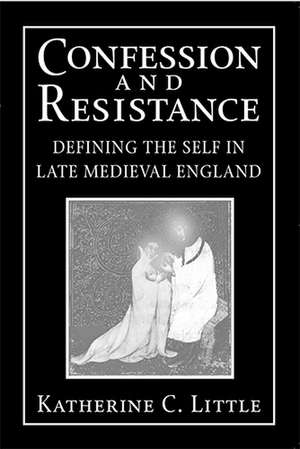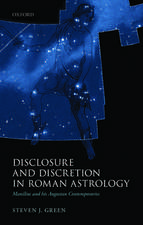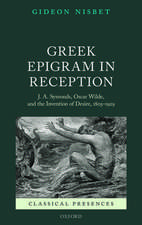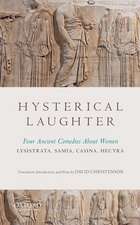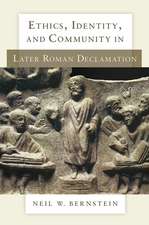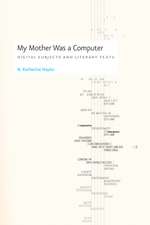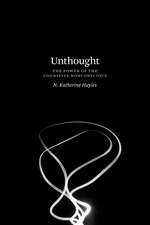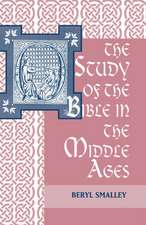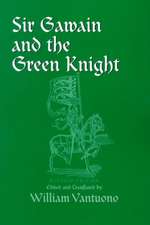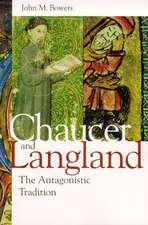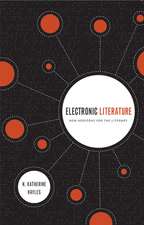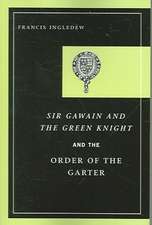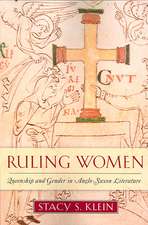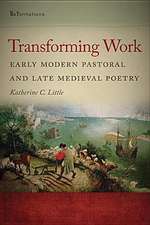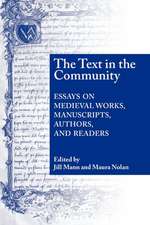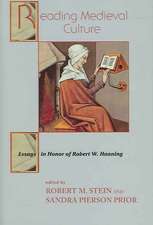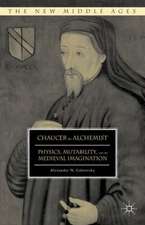Confession and Resistance – Defining the Self in Late Medieval England
Autor Katherine C. Littleen Limba Engleză Paperback – 29 apr 2006
| Toate formatele și edițiile | Preț | Express |
|---|---|---|
| Paperback (1) | 196.51 lei 6-8 săpt. | |
| MR – University of Notre Dame Press – 29 apr 2006 | 196.51 lei 6-8 săpt. | |
| Hardback (1) | 586.74 lei 6-8 săpt. | |
| MR – University of Notre Dame Press – 31 iul 2022 | 586.74 lei 6-8 săpt. |
Preț: 196.51 lei
Nou
Puncte Express: 295
Preț estimativ în valută:
37.61€ • 39.12$ • 31.05£
37.61€ • 39.12$ • 31.05£
Carte tipărită la comandă
Livrare economică 14-28 aprilie
Preluare comenzi: 021 569.72.76
Specificații
ISBN-13: 9780268033767
ISBN-10: 0268033765
Pagini: 204
Dimensiuni: 179 x 228 x 12 mm
Greutate: 0.33 kg
Ediția:1
Editura: MR – University of Notre Dame Press
ISBN-10: 0268033765
Pagini: 204
Dimensiuni: 179 x 228 x 12 mm
Greutate: 0.33 kg
Ediția:1
Editura: MR – University of Notre Dame Press
Recenzii
"Quite appropriately in a book so concerned with language and its ability to shape perceptions and definitions, Little has written a careful and well-crafted analysis of language as it was employed by the church, the Wycliffites, and those who lived during the time the two came into conflict. She integrates this compelling analysis with a well-balanced foundation in theoretical concerns as well as the scholarly work that has preceded her own. She has produced a valuable contribution to the scholarly discourse on Wycliffite heresy and on late medieval subjectivity in the form of an engaging and accessible piece of scholarship." —Comitatus
“Confession and Resistance examines penitential discourses as sources of a language of subject formation, or as Little prefers to call it, 'self-definition.' . . . Little seeks to demonstrate that there may be simultaneously a variety of competing discourses by examining texts produced during the period when the Wycliffites challenged the theology and institutions of penance. . . . The analyses are finely done, offering persuasive insights, new perspectives, and much to think about.” —Speculum
“This concise study explores the impact of Wycliffite challenges to an auricular confession on the development of selfhood or discourses of the ‘interior.’ . . . [The book] has plenty to offer by the way of suggestion and inspiration for further work on the history of subjectivity, on the genre of confession, and on the legacy of Wycliffism.” —Modern Philosophy
Notă biografică
Katherine C. Little is assistant professor of English at Fordham University.
Descriere
For scholars of medieval literature, confession, with its language of sin and contrition, has often provided the basis for our understanding of medieval selfhood and subjectivity. Confessional texts, whether penitential manuals or literary depictions of confession, suggest ways that people spoke about themselves and how they understood their interiority.
In Confession and Resistance, Katherine C. Little cautions that medieval selfhood should not be understood merely in terms of confessional practice. She points to the controversy over confession and, more generally, lay instruction that was generated in late medieval England around the heresy known as Wycliffism (or Lollardy). This controversy, she maintains, reveals the contested nature of the language of medieval selfhood.
Through her readings of Wycliffite sermons and polemical writings, Little argues that the Lollard resistance to confession should be understood as a debate over self-formation. For the Wycliffites, traditional confessional language had failed in its expected function—to define the self and to reveal the interior—and had to be replaced with new terms and new stories taken from the Bible. This new view of Wycliffism, as a crisis in the language of selfhood, allows the author to reevaluate the impact of Wycliffite ideas in Chaucer's Parson's Tale, Gower's Confessio Amantis, and Hoccleve's Regiment of Princes. Little finds in these texts, all of which include confession as a theme, a similar concern with the inadequacy of the traditional confessional mode.
"Our understanding of the intricacies of medieval thinking about the self is still less sophisticated than it needs to be, if we are ever to have a full history of the western subject. Built around a series of readings of Middle English theorizations of the self, confession, and community, this carefully-focussed and well-written book significantly advances our thinking on these closely related topics. On the way to its goal, Little's study also illuminates several other areas of current interest in medieval studies: the exemplum as a system of teaching and object of suspicion; the fault-line between Lollardy and fourteenth-century orthodoxy; and the impact of the Lollard controversy on the new patterns of orthodox belief and practice that emerged in the fifteenth century." —Nicholas Watson, Harvard University
"Confession and Resistance is a significant contribution to our understanding of late medieval Christianity and culture in England. Little shows the inventiveness with which Chaucer, Gower, and Hoccleve engage with Wycliffite textuality and ideology, often assimilating these as sources of a self-reflexive and vigorous orthodoxy cultivated by a learned, 'clerical' laity. Her focus should make the book of interest to those working in early modern fields as well as to medievalists."—David Aers, James B. Duke Professor of English and Religion, Duke University
